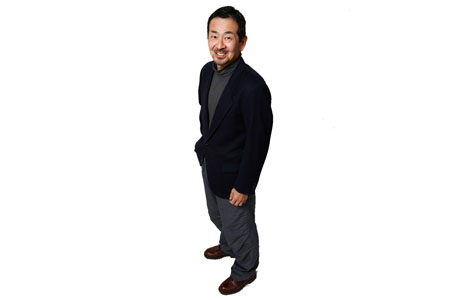MIYAGI Toru

- 役職/
Position - Professor at Institute of Japan Studies
- 研究分野/
Field - Education for International Students / Intercultural Communication / Psychology
My aim is to train "special generalists" who understand diversity and have confidence in their methodology
The study of intercultural communication places emphasis on listening to the opinions of other people with different cultural backgrounds, and developing the ability to think from diverse perspectives. I will teach a compulsory subject in the Japan Studies program, and there are three points that I would like to keep in mind in the light of paradigms in teaching and research in the twenty-first century.
Firstly, it is important to not look at "Japan" as a clear-cut given, but to gain an understanding of the perspective of Japanese language learners and researchers of Japan overseas and apply this to our observations of Japan. Outside of Japan, it is sometimes considered more efficient to teach Japanese using the students' mother tongue, rather than using the "direct method" of teaching Japanese in Japanese, which is the mainstream method in Japan. There are also many specialists who engage in research from different angles to those of the mainstream research in Japan. I hope that the program will provide students with an understanding of such teaching and research approaches that we might not normally be aware of Japan, and encourage them to use this as a basis from which to consider what kind of approaches to take. As teachers we must also consider how to use tools such as the internet, which now provide us with other possibilities for conducting basic language teaching and communication.
Secondly, it is necessary to readdress conventional learning styles focused on simply transmitting knowledge, and shift our approach to adopt a more flexible concept of learning. Students need to be able to actively transmit and receive information in conversations, debates and other such situations, and thereby give form to their own unique way of seeing things.
Thirdly, it is important to encourage students to take a step beyond simply acquiring knowledge, and use their knowledge to make accurate and convincing interpretations. Let us consider, for example, how information is used in an emergency situation. It is not enough for the information to simply be provided with speed and accuracy. It is more important for each individual to understand and assess the information in order to decide how to use it in taking the next step, such as coordinating evacuation or preventative measures. I would therefore like students to acquire the ability to collect and analyze information such that they are each able to take appropriate action.
Here at TUFS there are students from many different countries, with various different specialist fields. I would like to make use of this environment to educate "special generalists": students who are both "generalists," with a broad, interdisciplinary outlook and understanding of diversity, and "specialists," proud to consistently engage in research in a certain field and with a certain methodology. I will strive to support students to do so by helping them each to acquire the tools that suit them.




